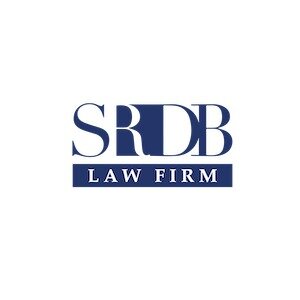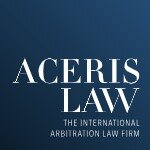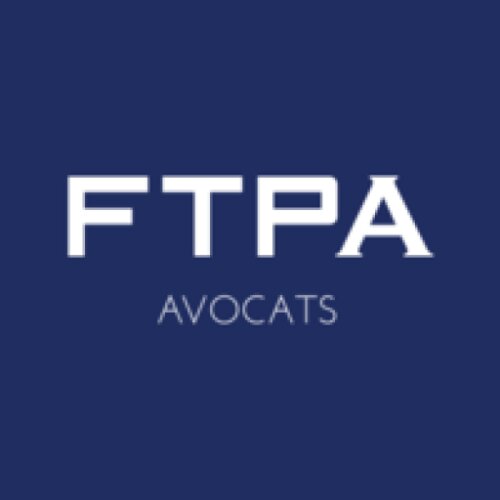Best Equity Capital Markets Lawyers in France
Share your needs with us, get contacted by law firms.
Free. Takes 2 min.
Or refine your search by selecting a city:
List of the best lawyers in France
About Equity Capital Markets Law in France
Equity Capital Markets (ECM) refer to the markets where companies raise capital through the issuance of equity securities, such as shares. In France, ECM law governs the offerings, transactions, and regulations related to public and private equity placements. The legal framework is designed to balance market efficiency, investor protection, and corporate transparency. France is a significant market in the European Union, with the Euronext Paris being a prominent venue for listings and capital raisings. ECM activities in France are subject to strict rules, requiring compliance with both European regulations and national laws.
Why You May Need a Lawyer
Participating in the French equity capital markets involves navigating a complex legal landscape. You may need a lawyer for several reasons, such as:
- Advising on initial public offerings (IPOs) and follow-on offerings
- Drafting and reviewing prospectuses and offering documents
- Ensuring compliance with disclosure obligations
- Handling private placements and rights issues
- Structuring complex transactions, such as mergers or acquisitions involving shares
- Dealing with legal disputes related to equity offerings
- Assisting with cross-border offerings and navigating EU securities regulations
- Communicating with regulatory authorities like the Autorité des marchés financiers (AMF)
- Providing strategic advice regarding market abuse and insider trading laws
Local Laws Overview
French equity capital markets are regulated primarily by the French Commercial Code, the Monetary and Financial Code, and the rules set by the AMF. Key aspects include:
- Prospectus Regulations: Companies issuing equity to the public must prepare and publish a prospectus approved by the AMF, unless an exemption applies.
- Disclosure and Reporting: Issuers must regularly disclose financial information, material events, and other relevant details to the public and the AMF.
- Market Abuse Rules: Laws strictly prohibit insider trading and market manipulation, with severe penalties for violations.
- Takeover Regulations: Special rules apply to mandatory offers, squeeze-out procedures, and defense mechanisms.
- Shareholder Rights: French law provides specific rights to shareholders, including information, voting, and dividend rights.
- Listing Requirements: Euronext Paris and other platforms have eligibility criteria, ongoing obligations, and delisting procedures.
- EU Legislation: The French market integrates numerous European Union directives and regulations, such as the Prospectus Regulation and the Market Abuse Regulation (MAR).
Frequently Asked Questions
What is the role of the AMF in French equity capital markets?
The AMF, or Autorité des marchés financiers, is the regulatory authority overseeing financial markets in France. It approves prospectuses, monitors market activity, ensures compliance, and enforces securities laws.
Do all companies listing shares in France need to publish a prospectus?
Most public offerings require an approved prospectus. However, certain private placements and specific transactions may be exempt under both French and EU rules.
What are the main steps in an initial public offering (IPO) in France?
Key steps include company preparation, selection of advisors, draft and approval of the prospectus, investor marketing (roadshows), book-building, pricing, and trading commencement on the chosen market.
How are insider trading and market abuse regulated?
Insider trading and market abuse are strictly prohibited. The AMF monitors trading and investigates suspicious activities, with criminal and administrative penalties for violations.
Can foreign companies raise capital in France?
Yes, foreign issuers can access French equity capital markets provided they comply with local and EU-facing requirements, often coordinated through cross-border prospectus approvals.
What obligations do listed companies have to their shareholders?
Listed companies must ensure ongoing disclosure of financial results, material events, and corporate governance information. Shareholders are entitled to voting, dividend, and information rights under French law.
What are the risks of non-compliance with ECM regulations?
Non-compliance can result in enforcement actions, penalties, suspension or delisting of securities, reputational damage, and even criminal prosecution in severe cases.
How are cross-border offerings handled in France?
Cross-border offerings within the EU may use a single approved prospectus (passporting). Offerings to investors outside the EU may require compliance with additional rules in those jurisdictions.
What are the requirements for delisting from Euronext Paris?
Delisting procedures involve regulatory review, shareholder consultation, and fulfillment of specific obligations to protect investor interests.
When is legal advice particularly important in ECM transactions?
Legal advice is crucial for structuring complex offerings, ensuring regulatory compliance, managing disclosure requirements, and addressing potential disputes or regulatory investigations.
Additional Resources
Several official and professional organizations provide valuable information and support regarding equity capital markets in France:
- Autorité des marchés financiers (AMF) - The main regulator for securities offerings and market conduct
- Euronext Paris - The primary exchange for ECM transactions in France
- Banque de France - Offers analysis and statistics related to French financial markets
- European Securities and Markets Authority (ESMA) - Oversees harmonized market rules in the EU
- French Association of Financial Lawyers (Association Française des Juristes d’Entreprise - AFJE)
- Public financial libraries and publications by the Ministry of Economy and Finance
Next Steps
If you are considering raising capital, investing in equities, or undertaking a transaction within the French equity capital markets, it is important to consult with an experienced lawyer. They can guide you through regulatory requirements, prepare the necessary documentation, facilitate communication with authorities, and ensure your interests are protected.
To proceed, you can:
- Identify law firms or lawyers specializing in equity capital markets in France
- Prepare an outline of your project, objectives, and any relevant documents
- Schedule a consultation to discuss your needs and potential legal steps
- Request a clear engagement letter outlining the scope, fees, and expected timelines
- Stay informed by following updates from the AMF, Euronext, and other relevant bodies
Taking these steps will help ensure your ECM activities in France are legally compliant and strategically sound.
Lawzana helps you find the best lawyers and law firms in France through a curated and pre-screened list of qualified legal professionals. Our platform offers rankings and detailed profiles of attorneys and law firms, allowing you to compare based on practice areas, including Equity Capital Markets, experience, and client feedback.
Each profile includes a description of the firm's areas of practice, client reviews, team members and partners, year of establishment, spoken languages, office locations, contact information, social media presence, and any published articles or resources. Most firms on our platform speak English and are experienced in both local and international legal matters.
Get a quote from top-rated law firms in France — quickly, securely, and without unnecessary hassle.
Disclaimer:
The information provided on this page is for general informational purposes only and does not constitute legal advice. While we strive to ensure the accuracy and relevance of the content, legal information may change over time, and interpretations of the law can vary. You should always consult with a qualified legal professional for advice specific to your situation.
We disclaim all liability for actions taken or not taken based on the content of this page. If you believe any information is incorrect or outdated, please contact us, and we will review and update it where appropriate.
Browse equity capital markets law firms by city in France
Refine your search by selecting a city.














